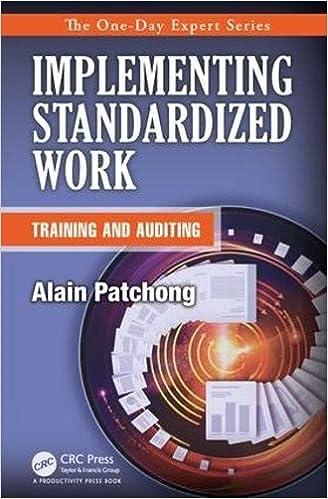Answered step by step
Verified Expert Solution
Question
1 Approved Answer
Monopoly Instructions FORM THE COMPANY: There are four players to a game, each acting as a separate corporation. In addition, one player acts as the
Monopoly Instructions
- FORM THE COMPANY: There are four players to a game, each acting as a separate corporation. In addition, one player acts as the banker. Decide on a name for your company.
- OBTAIN FINANCING: To start the game the banker loans each company $1500 from Monopoly State Bank (6% annual interest) and each company receives $500 cash from the banker as transfer from the owners personal account (record as an investment by the owner).
- DISTRIBUTE PROPERTY: The banker randomly gives four property cards to each company. Remaining cards are available for purchase during the game beginning with the first trip around the board. Record properties at the value printed on the game board assuming that these assets were personal properties of the owner, now transferred to the corporation. You do not need a monopoly to buy houses and hotels (each player must own at least one house or hotel at the end of the game).
- START BUSINESS: Except as noted below use the standard Monopoly rules. Record by date in the general journal each transaction as it occurs. Each roll of the dice represents one month. Record all entries in the month they occur (you may have more than one entry per month1/1, 1/2, 1/3, 2/1, 2/2, 2/3, etc.). The dates will be important for calculating interest on loans. Remember that some transactions will occur during another companys turn. If you are not sure how to record a transaction, discuss it with the other players at your game board. No player may begin a turn until the transactions from the previous turn have been recorded. Any player not ready to play right at the beginning of class will owe a $500 fine to every other team at that game board. The banker will pay you $200 cash when you pass GO. The following are hints on how to record transactions.
| Money received: | Record as: |
| Passing GO | Consulting Revenue |
| Rent | Rent Revenue |
| Utility or Railroads | Investment Income |
| Money paid: | Record as: |
| Rent | Rent Expense |
| Utilities | Utilities Expense |
| Railroad | Travel Expense |
| Properties | Land, Railroads, or Utilities |
| Houses or Hotels | BuildingsHouses or Hotels |
| Income or Luxury Taxes | Income Tax Expense |
- BORROWING MONEY: At any time a company may borrow money from the bank at 24% annual interest. Secured loans (mortgage of property) carry an interest rate of 12%. Mortgaged property cannot collect rent.
- JAIL TIME: Management is not allowed to waste their time languishing in jail. You must leave jail on your next move by throwing doubles, using a Get Out of Jail Free card, or by paying the $50 fine.
- TAXES: If you land on income tax or luxury tax, simply pay $200 or $75 to the bank.
- TRADING PROPERTY: When you trade or sell property, negotiate your trade and compute any gain or loss on the trade based on your cost and the proceeds you get from the trade.
- TRADITIONAL RULES APPLY: No extra turn for rolling doubles, no money pot for Free Parking, and no double payment for landing on GO.
- END OF YEAR: When time has run out or each player has completed 12 turns (no player can be on GO), do not liquidate your assets. Post all entries to the general ledger (you may use T-accounts). Prepare a trial balance. Prepare the following adjusting entries and an adjusted trial balance.
- Reconcile Accounts: Make sure your cash account balances with your cash on hand; if not make an adjusting entry using a Cash Over and Short account (loose points if over $50). Also reconcile your property including houses and hotels to your books.
- Depreciation Expense: Assume a useful life of 10 years for houses and 15 years for hotels with no residual value. Compute 1/2 year depreciation on buildings owned at the end of the game using the straight line method. No depreciation is recorded for buildings sold during the game. Do not depreciate land or other investments.
- Consulting Fee Revenue: Record uncollected consulting fees as an Accounts Receivable. Accrue $5 of consulting fees for every space on the board that you were past GO when time ran out.
- Interest Payable: Record interest payable at the proper interest rate for the number of months that the money has been borrowed on any outstanding loans.
- PREPARE FINANCIAL STATEMENTS: Prepare an income statement, owners equity statement and a classified balance sheet. Close the temporary accounts and prepare an after-closing trial balance. Submit your general journal, general ledger, financial statements and three trial balances, as well as your status report, asset record and notes payable record.
- TYCOON: The person with the greatest net income and largest capital account is the winner and will receive extra credit.
Step by Step Solution
There are 3 Steps involved in it
Step: 1

Get Instant Access to Expert-Tailored Solutions
See step-by-step solutions with expert insights and AI powered tools for academic success
Step: 2

Step: 3

Ace Your Homework with AI
Get the answers you need in no time with our AI-driven, step-by-step assistance
Get Started


